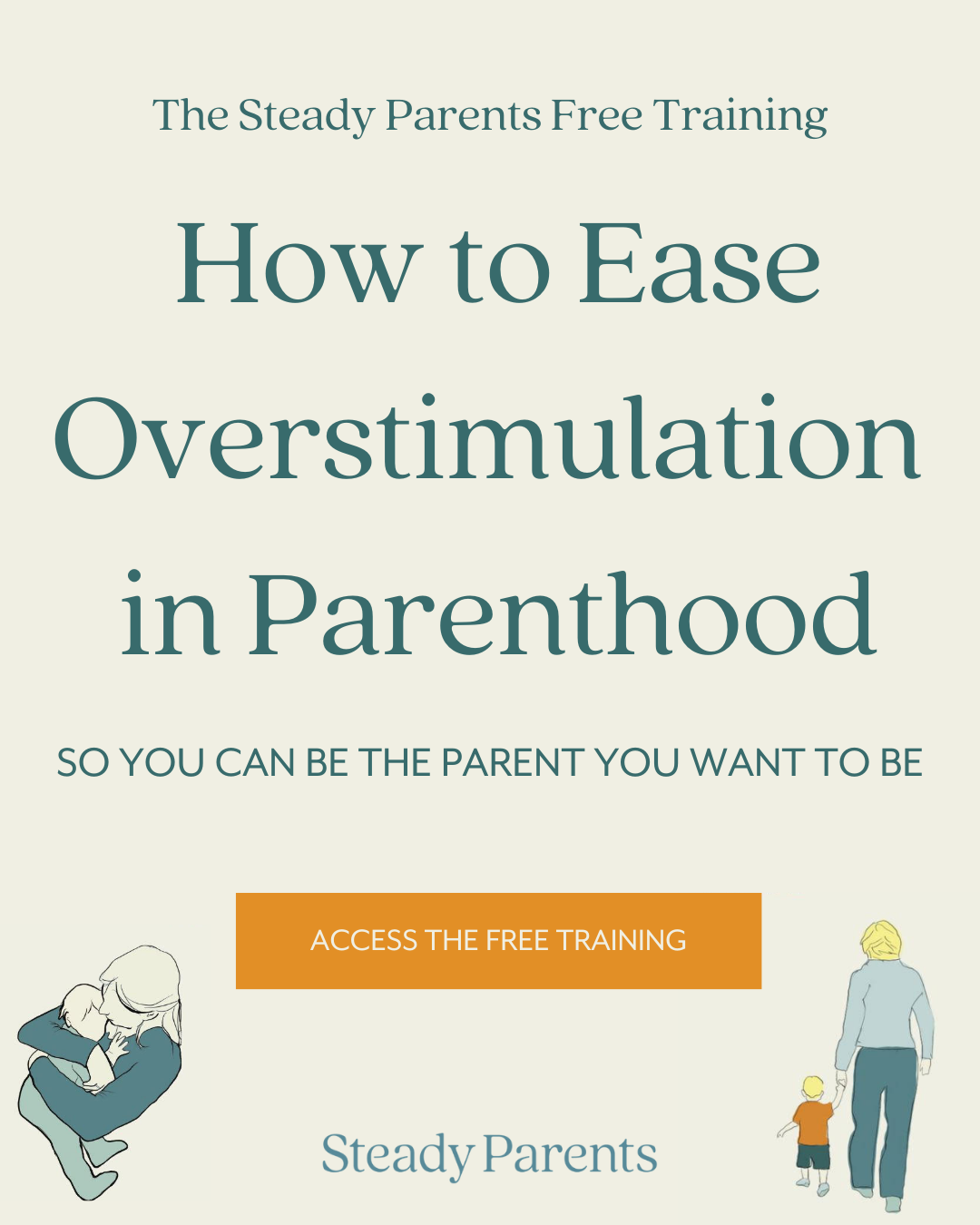5 Tips to Reduce Overstimulation When Vacationing with Young Kids
Let’s face it- traveling with young kids is far from the relaxing vacation days you may have had in your twenties. .I recently got back from a trip to Hawaii with my 2 young children (while also pregnant), and while I didn’t expect to have lavish spa experiences and sip pina coladas by the beach all day, I did want to enjoy the experience.
Planning a vacation with young children can be both exciting and overwhelming. As parents, it's essential to prioritize self-care and create a balanced environment that promotes relaxation and connection.
I learned a few strategies for keeping it as relaxing as possible that I want to share with you.
Here are five tips to help you reduce overstimulation during your family getaway:
Feed yourself, too
The last few trips we have been on as a family, I have been the only one who gets sunburned on the first day.
Why?
Because we put sunscreen on the kids, my husband puts sunscreen on himself, but in the chaos of getting out the door, I neglected myself.
One of the most important things to remember when traveling is that you, the parent, are a key player in the family dynamic. It matters if you take care of yourself. Don’t think of this as “one more thing to add to my to-do list,” rather, it’s a simple perspective shift in caring for your family.
We often get so wrapped up in making sure our children will have food, water, sunscreen, hats, whatever it is, that we forget that we, too, need to have meals, snacks, water, and sunscreen (not just coffee & cocktails!)
“One of the most important things to remember when traveling is that you, the parent, are a key player in the family dynamic.”
Move your body in “downtime”
Ideally, vacation is a time for the family to connect and get to know each other on a deeper level. Plan for, and allow, downtime so that you can shift into a parasympathetic (relaxed) state, which is the state that allows you to connect with another.
This doesn’t necessarily mean staying in the hotel room (in fact, sometimes this can be dysregulating!). It means a simple activity that can allow for connection, such as being in the pool, at the beach, finding a playground, or going for a walk.
Movement is necessary for nervous system regulation. And a regulated nervous system is necessary for a steady, joyful moment. And movement within a relationship (moving WITH someone) gets the gold star for nourishing co-regulation. Enjoy your family within the context of moving your bodies.
Learn more about the power of gentle movement when it comes to regulating your nervous system here.
Find micro-moments of connection
On our recent beach vacation, I found myself having a harder time relaxing than previous vacations. A lot of variables were involved in this, some of which included my being 28 weeks pregnant and experiencing pelvic pain (which made walking on sand excruciatingly painful!), and the upcoming transition to a family of five.
I had moments on the trip that felt out of control, and I snapped at my children more than I wish I had. But when I shifted my perspective to “what CAN I do with my kids?” and “what DID I do with my kids?,” I was able to let those moments fill me up, and the “snapping” moments lessened.
For me on this trip, I was in the least amount of pain while in an inner tube floating in the pool with my hips underwater, so I made an effort to get in the pool with my kids every day and really be present and find joy in those moments.
Pack snacks that are nutrient-dense and sensory-supportive.
Traveling can be stressful, so make sure the foods you and your family are eating are supporting you from multiple channels.
Classic travel “snack food” may make travel harder, because you are offering quick energy that can lead to a blood sugar spike and fall, rather than something that sustains your body for a few hours. Make sure protein, fat, and fiber are available in a snack.
Additionally, be aware of the sensory aspects of the snack. Crunchy and chewy foods (apples, beef jerky, bagels, smoothies through a straw…) can help regulate the nervous system. It gives sensory input into the mouth.
The act of chewing pushes resistance deep into the ligaments and tendons of the teeth and jaw to release serotonin which supports regulation. And, input into the mouth helps create a balance of the muscles on the sides of the neck and brings the eyes into a space where you can be available for social engagement and connection.
Remove the sense of urgency.
I know this one can feel impossible but it’s so necessary. So often on trips we feel this internal sense of urgency. Rush to get to the airport, rush through security, rush to check into the hotel, rush to unpack, rush to go to the next activity, rush to dinner…
Of course airplanes might leave without us, but most of the time we actually do give ourselves plenty of time.
So that internal drive to “rush” in the airport (or get on the road if driving) is not serving us, and actually makes us more overstimulated (and potentially late!).
When you’re feeling rushed, stop, check in, and see if the rush is warranted. If not (and it probably isn’t), take a deep breath and slow down.
Bonus Tip: Dress your kids in neon colors so that you can see them easily in the water or on the beach.
Wearing neon colors at the beach serves a dual purpose of ensuring your child’s safety by making them highly visible in water or on the beach, while also providing peace of mind for parents, allowing you to relax and enjoy your vacation without constantly worrying about their children's whereabouts.
The lifeguards will thank you, too!
By implementing these tips and prioritizing self-care, you can create a more enjoyable and stress-free vacation experience for your family. Remember, taking care of yourself is key to supporting your children's well-being and avoiding sensory overload.
Don’t stress about “maximizing your time” and “making memories.” The memories are made when you are able to slow down and embrace the season and moment you are in- without the overstimulation. Enjoy your vacation and cherish the moments of connection with your loved ones!
Pin this for Later:








